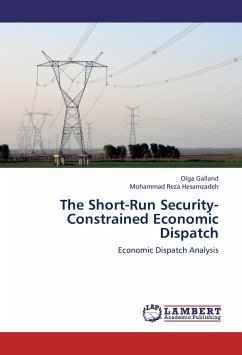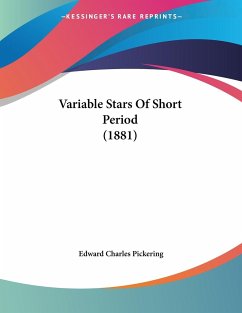
The Short-Run Security-Constrained Economic Dispatch
Economic Dispatch Analysis
Versandkostenfrei!
Versandfertig in 6-10 Tagen
32,99 €
inkl. MwSt.

PAYBACK Punkte
16 °P sammeln!
In liberalized electricity markets, the outputs of controllable units (both generators and demands) must be defined at regular time intervals ( dispatch intervals ). Nowadays, balancing services are procured and dispatched not in the most efficient way partly due to long dispatch intervals. The dispatch interval in most European countries is one hour. During the dispatch interval, demand and wind power capacity fluctuates a lot. To keep the supply-demand balance in the system, some generators participate in frequency control. This action increases the system operation cost. By reducing the dis...
In liberalized electricity markets, the outputs of controllable units (both generators and demands) must be defined at regular time intervals ( dispatch intervals ). Nowadays, balancing services are procured and dispatched not in the most efficient way partly due to long dispatch intervals. The dispatch interval in most European countries is one hour. During the dispatch interval, demand and wind power capacity fluctuates a lot. To keep the supply-demand balance in the system, some generators participate in frequency control. This action increases the system operation cost. By reducing the dispatch interval to short periods of time over which physical limits of the power system are fully respected, balance services could be dispatched in a more efficient way. This improves the overall economic efficiency of the system. This work derives the mathematical model for short-run economic dispatch. The developed optimization problem is a linear programming problem. The developed formulation for the short-run economic dispatch is modeled in GAMS platform. Two applications of the proposed model are discussed: (1) power system security, and (2) real-time balancing market.












